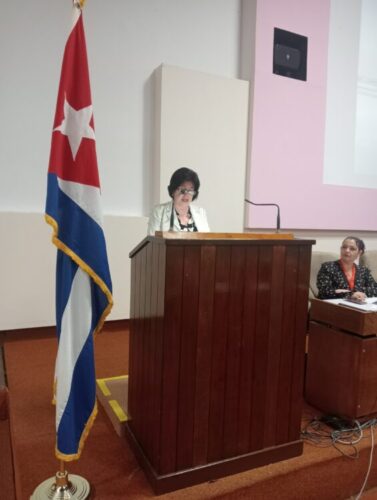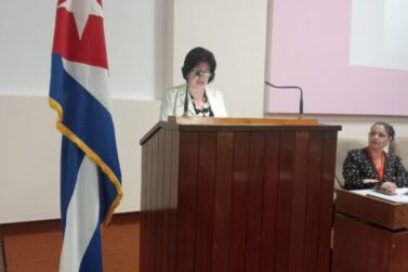With the aim of reflecting and deepening the changes that have taken place in the continent, and to generate the best doctrine to defend and strengthen the right to work in the current circumstances, more than 300 labor and trade union lawyers from a dozen countries of the Ibero-American region concluded this Friday in Havana important debates on the world of labor and social security.

For three days, the experts, gathered in the halls of the Palacio de Convenciones in the Cuban capital, analyzed constitutional and legal reforms and their impact on job stability and the protection of workers’ rights, as well as the right to social inclusion as a paradigm in the new scenarios.
They also discussed the right to work in the 21st century, its nature, its formulation, experiences in articulating actions in defense of the right to work and the working class, the trade union movement and the current threats to freedom of association, collective bargaining and the right to work.
Among other topics, the analysis included the right of workers to information and participation in the management of the company, occupational health and safety, and the prevention of occupational risks as a fundamental principle and right.
Also the self-employed and production and service cooperatives, new labor subjects, their protection, migrant workers and the defense of their human rights, harassment, violence at work, human trafficking and smuggling in labor scenarios.
In their debates, the experts also highlighted the resolution of labor and social security conflicts, the protection of maternity and paternity in the new scenarios, gender phenomena in labor and social security matters, and the so-called atypical forms of work, telework, telecommuting and platform work.
The meeting, in its XVII edition, was convened by the Cuban Society of Labor Law and Social Security, the National Union of Jurists of Cuba, the Latin American Association of Labor Lawyers, and other related institutions.
The final day of the Conclave was led by Martha Elena Feitó Cabrera and Oscar Manuel Silvera Martínez, Cuban Ministers of Labor and Social Security and Justice, respectively, Guillermo Ferriol Molina, President of the Cuban Society of Labor Law and Social Security, and other personalities linked to labor law and the trade union movement.
She said the world of work is changing at an unprecedented pace, driven by technology, globalization and new forms of organization. «This context, she noted, poses significant challenges to the right to work, which must adapt in order to continue to play its role in protecting workers, promoting social justice and guaranteeing their dignity.»


